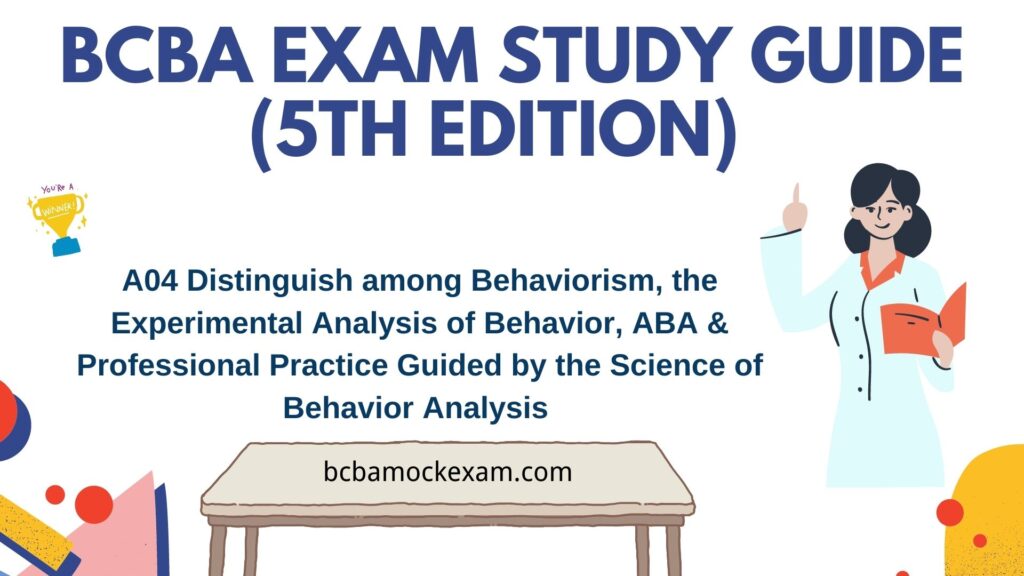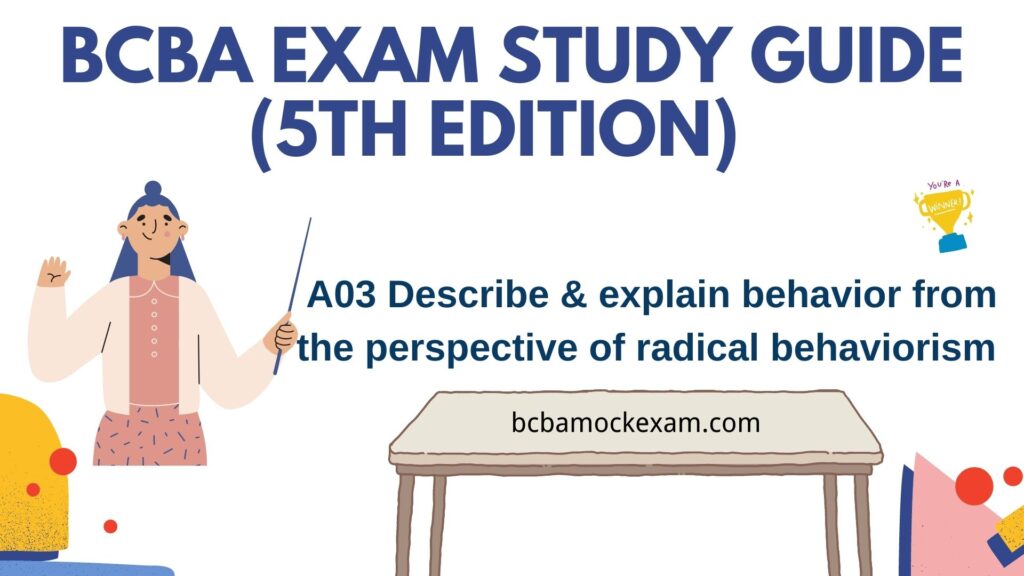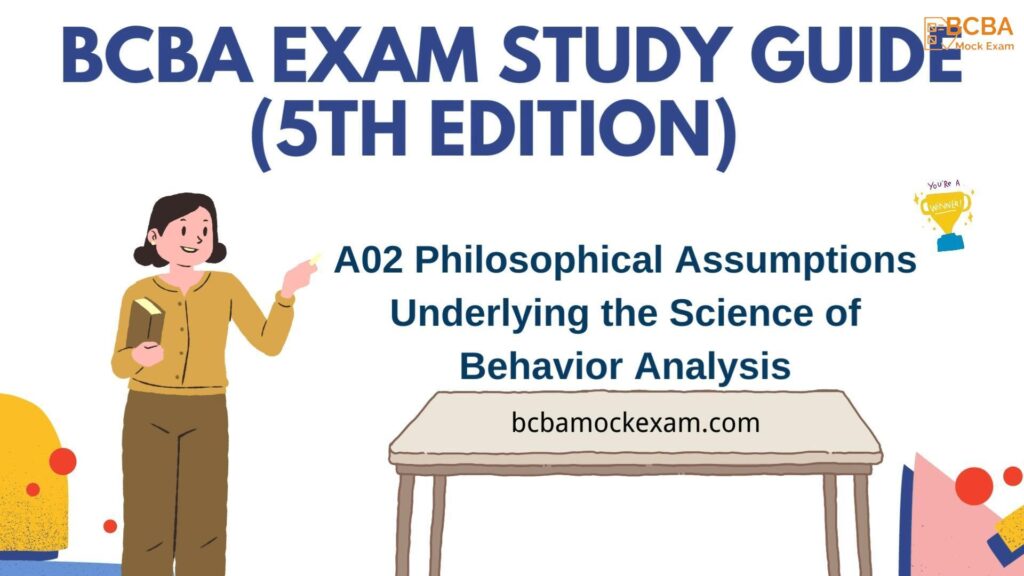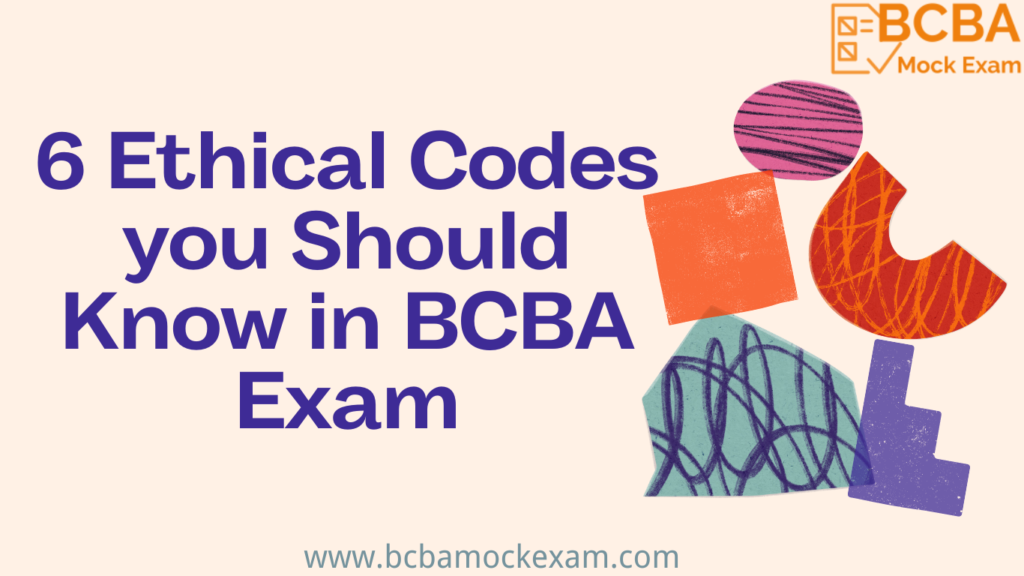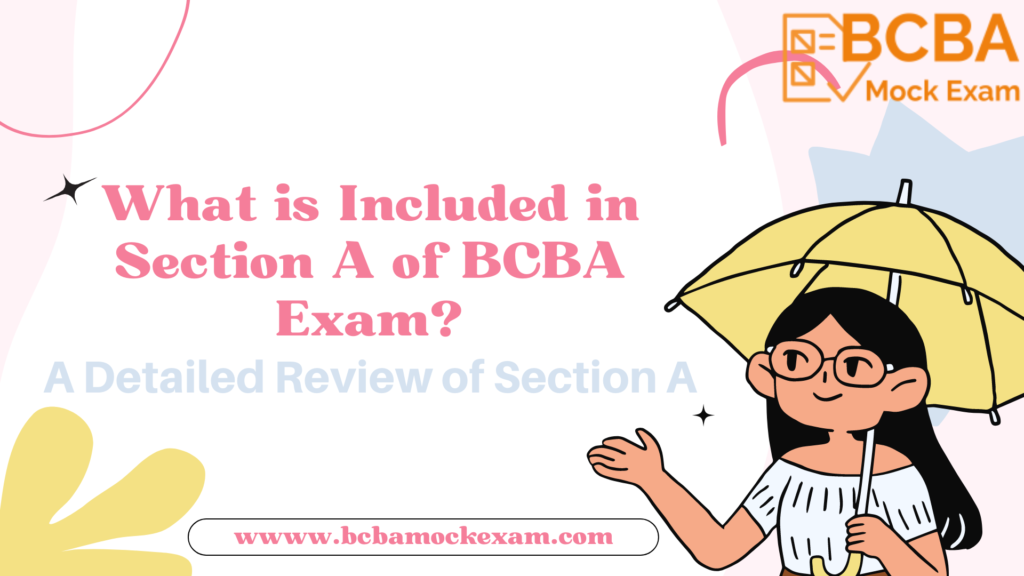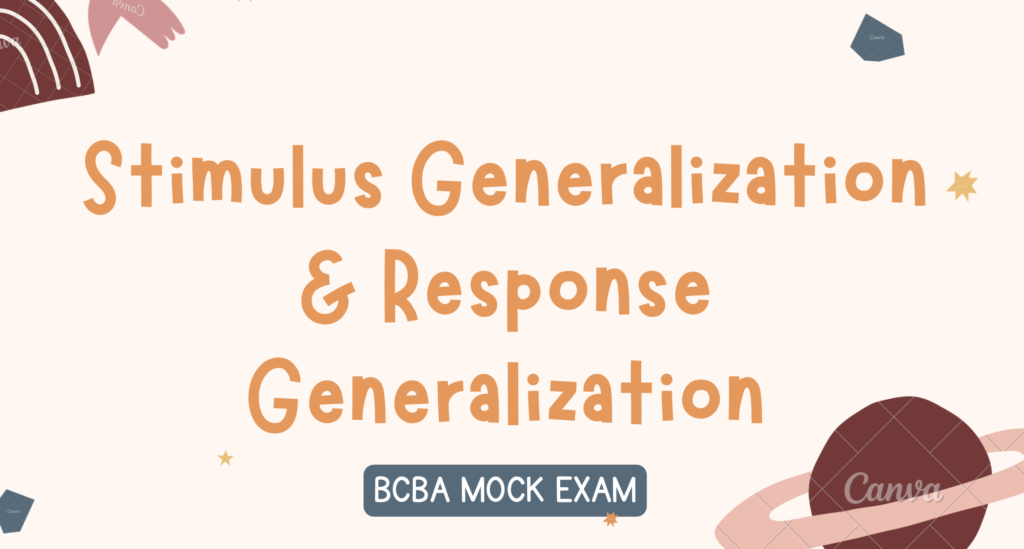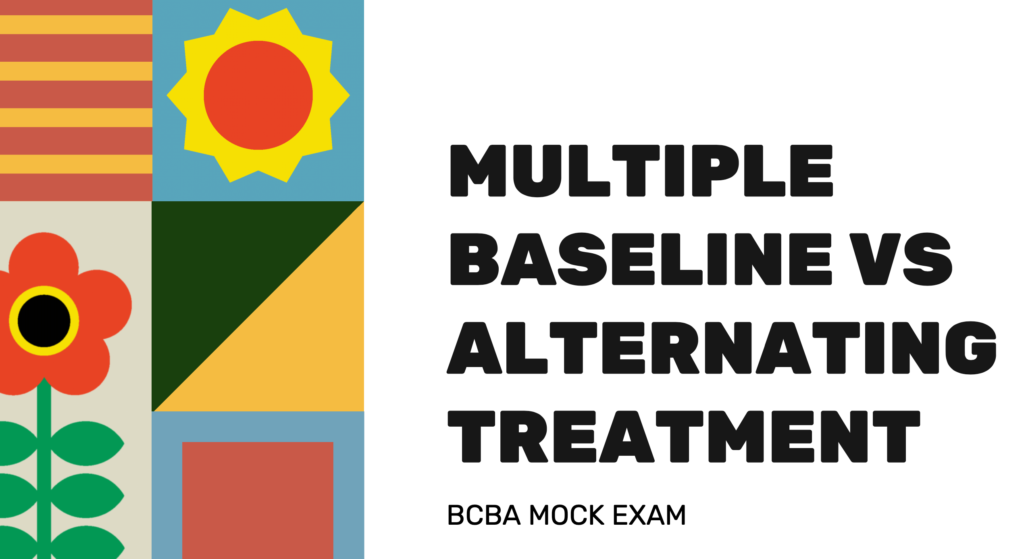Distinguish among behaviorism, the experimental analysis of behavior, applied behavior analysis, and professional practice guided by the science of behavior analysis
— Part 4 of Philosophical Underpinnings of Behavior Analysis 1. Behaviorism: It’s the guiding philosophy of behavior science. It focuses on the idea that behavior is a result of interactions between individuals and the environment. Behaviorism assumes that behavior is either a reflex evoked by the pairing of certain antecedent stimuli in the environment, or …

